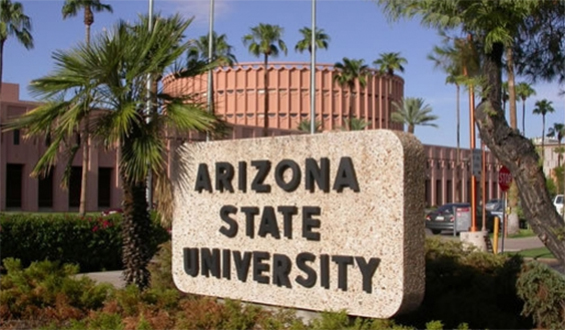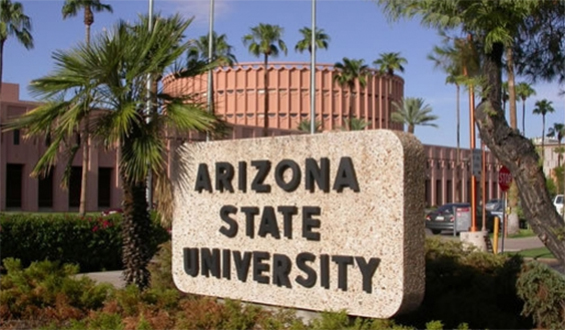
This month Arizona State University launched its first free online course, a news literacy class entitled “Media LIT: Overcoming Information Overload”, which will help its students analyze news, movies, music, and online posts for accuracy and to think critically about the media that they consume.
The Massive Open Online Course, or MOOC, is available on the online education platform edX, a learning service that was founded in 2012 by Harvard and MIT, writes Cassidy Trowbridge of the Phoenix Business Journal. The class’s format includes videos of lectures and interviews with personalities like Buzzfeed’s Editor-in-Chief Ben Smith, Wikipedia’s Jimmy Wales, New York Times editor Margaret Sullivan, Craig Newmark of Craigslist, and the musician Amanda Palmer, according to ASU News.
Students complete short readings, participate in a discussion forum, complete short assignments, and take open-book quizzes.
The class can be started at any time and students aren’t required to match its pace, though new units are released on Sundays and quizzes are being posted on Thursdays. If students want to receive a certificate of completion (which costs $25), they must pass the course by August 23rd, though material will still be available after that deadline. The coursework is estimated to take students 3 or 4 hours a week for seven weeks.
In a statement, ASU’s Vice Provost Christopher Callahan said:
This new course makes world-class journalism and communications instruction more accessible to people around the world.
There are no prerequisites, writes Kaila White of the Republic, but completing the course does not earn students any college credit.
The course was created by Kristy Roschke and Dan Gillmor, professors at ASU’s Walter Cronkite School of Journalism and Mass Communication. The class references Gillmor’s book, Mediactive, but, in keeping with the edX philosophy, it can be downloaded for free.
Gillmor said that putting effort toward developing online education options opens access to learning:
MOOCs are still an experiment in education, but an especially intriguing one from my perspective. We and others offering these courses have the opportunity to bring what we know to many more people, and if we do it well it gives others a way to expand their horizons.
Roschke agreed with the scalability of the project:
We are just starting to understand what MOOCs mean for traditional education. But I think one of the key benefits to the platform is that it enables high-quality education on a global scale.
More than 3,000 people from 126 countries have already enrolled. 38% are in the US, and 7%, the second-largest group, are in India.
The course was also supported by the Robert R. McCormick Foundation, writes Maria Springs of KJZZ, which is a nonprofit formed in 1955 after the passing of the editor and publisher of the Chicago Tribune. The Foundation focuses on educating the public and encouraging civic engagement, aiding veterans, supporting early childhood education, and the growth of journalism.




